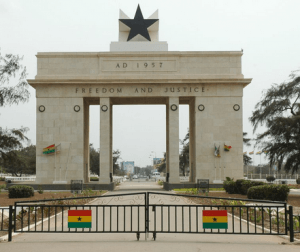Ghana not second most corrupt country in Africa – TI official
 News in some sections of the Ghanaian media that Ghana has been found to be the second most corrupt country in Africa in a report by Transparency International, (TI), is incorrect.
News in some sections of the Ghanaian media that Ghana has been found to be the second most corrupt country in Africa in a report by Transparency International, (TI), is incorrect.
An official of the international anti-corruption organization, TI, has told ghanabusinessnews.com in email correspondence today Thursday December 3, 2015 that the interpretation put to its survey, is problematic.
TI on December 1, 2015, released the results of an opinion poll conducted among 28 African countries, on the perceived prevalence of corruption and the perceived levels of change (improvement or deterioration) in corruption.
The survey sought to find out whether people thought corruption had improved or worsened in their country and how well they thought their governments were doing in the fight against corruption.
Following the release of the report “People and Corruption: Africa 2015” which found Ghana to be second worst in respondents’ perceptions towards change and improvement in corruption, a significant section of the Ghanaian media erroneously reported that Ghana had been identified or ranked as the second most corrupt country in Africa. The media reports suggested that South Africa was first and Nigeria was third.
A section of the media also erroneously described the survey report as TI’s Corruption Perceptions Index, which is a wider, more thorough and more expertly-done assessment of the perceived levels of corruption which ranks over 170 countries across the world.
However, responding to an enquiry by ghanabusinessnews.com, Coralie Pring, Research Coordinator for Corruption Surveys at Tl, said that while the results of the survey do not bode well for Ghana, there are two major problems with the simple statement that Ghana is the second most corrupt country on the continent, based on TI’s new report.
She pointed out that the survey was an assessment that considered only 28 sub-Saharan African countries and is not representative of Africa or of even sub-Saharan Africa.
“The opinion poll question most relevant to this topic is not about LEVELS of corruption but about the CHANGE in levels of corruption. Hence, Ghana could still have low levels of corruption compared to other African countries, but more people in Ghana think that corruption has increased than anywhere else except South Africa,” Pring said.
As the above statement suggests, the level of corruption in Ghana could still be better than other countries where respondents claimed that they did not think corruption was so prevalent and tackling the menace had improved in their country.
The Research Coordinator further stated: “The results are from a public opinion survey, therefore they reflect the views and experiences of ordinary people, rather than an independent assessment of the scale of corruption in each country like the Corruption Perceptions Index. The CPI is based on experts’ assessments of the scale of corruption.
That said, across a number of questions, Ghana fairs quite poorly compared with its neighbours – with a high bribery rate, high perceived levels of corruption in the public sector and the majority of people rating the government poorly at fighting corruption. However, half of people said that they think ordinary people can make a difference in fighting corruption, indicating that many do feel empowered in the country,” Pring added.
By Emmanuel K. Dogbevi & Emmanuel Odonkor
